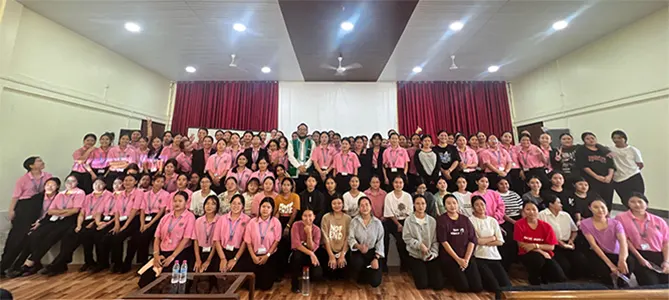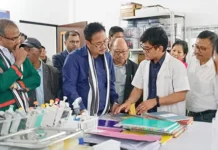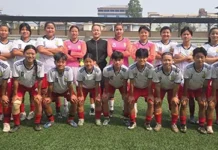NIRJULI, 2 Nov: A cultural competency workshop for healthcare professionals was conducted at Zion Institute of Nursing, here by Tribal Health Collaborative, Piramal Foundation.
The workshop aimed at enhancing the understanding and skills of healthcare professionals in addressing health disparities within tribal communities across India.
Tribal Health Collaborative, Piramal Foundation program manager Dr. Kaling Dabi opened the session by highlighting the significant health disparities faced by tribal communities, emphasizing that “these are influenced by various cultural and social determinants.” He then engaged participants in an in-depth discussion on the concepts of culture and cultural competency, both in general terms and within the unique context of tribal communities.
During the session, Dr. Dabi explained how stereotypes, biases and prejudices are formed and their impact on healthcare delivery. He emphasized the importance of recognizing and managing these biases to become culturally competent healthcare providers. He also pointed out the systemic neglect of culture as a critical social determinant of health and well-being, stressing the need for focused interventions.
A state award-winning documentary directed by Dr. Kombong Darang, co-founder of the Ngunuk Foundation and produced by the Centre for Endangered Languages, Rajiv Gandhi University, was also screened. The film explores the belief systems and culture of spiritual healing among tribal communities.
Dr. Kaling Dabi further elaborated on the efforts of the Tribal Health Collaborative, Piramal Foundation, in conducting such workshops across India. “These workshops are aimed at doctors, nurses, mid-level functionaries and frontline workers to promote culturally sensitive healthcare practices,” he said and shared examples from similar workshops held across Northeast India, including at NEIGRIHMS in Shillong, RIMS in Manipur and TRIHMS in Arunachal Pradesh.



